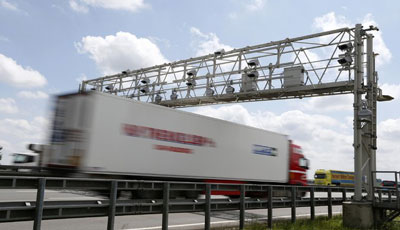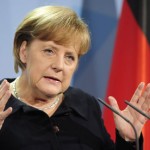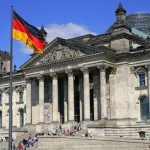Germany Proposes a Road Tax Aimed Primarily at Foreigners

The German government announced plans on Monday to charge a road-use fee on all cars using roads and highways in Germany, a measure aimed at the foreign-registered cars that make an estimated 170 million trips to and through the country each year.
Grappling with decaying infrastructure, particularly in densely populated areas of western Germany, the government brushed aside criticism that the measure was too sweeping or violated European Union norms.
Alexander Dobrindt, the transport minister, designated the new toll an “infrastructure levy,” which he said would add 2.5 billion euros, or $3.4 billion, over a four-year period to the funds available for road repair and construction.
He said foreigners would be able to buy 10-day road-use passes for €10 and two-month passes for €20. Mr. Dobrindt added that no foreigner could expect to pay more than €100 every 12 months.
The charge for a whole year — most likely to apply to German-registered vehicles — would vary according to the size and age of the car, he said.
Germans will be compensated for the new road-use fee through reductions in the current vehicle tax, Mr. Dobrindt said, and “will not pay more than they do today.” The goal is to have the new fee in place by Jan. 1, 2016.
To German voters, car ownership and the ability to drive at unlimited speed on some stretches of highway are considered among the most sensitive and sacrosanct privileges.
There is already a toll on trucks, which will continue. The heavy truck traffic crisscrossing Germany is widely blamed for much of the damage to its highways and roads.
In Germany’s west, roads and bridges have fallen into disrepair over the two decades since unification, while billions of euros have been spent on infrastructure in the more sparsely populated former East Germany.
Introducing measures to improve infrastructure and rectify this regional inequality was part of the coalition agreement that Chancellor Angela Merkel and her Christian Democratic Party reached with the center-left Social Democrats when they formed a government last November.
One of the few arguments that rippled through Ms. Merkel’s election campaign last year was a fight with the Christian Democrats’ sister party, the Christian Social Union, over its insistence on introducing a highway toll. The chancellor said she would never support such a measure.
Technically speaking, Ms. Merkel has kept her promise because the new measure is a fee on the use of any road, and not just the dense network of autobahns, or highways, which are a vital and much-used part of Europe’s network of land transport.
Critics were swift to argue that the proposal would discriminate against Poles, Czechs, Austrians, Swiss, Dutch and other neighbors by effectively making those living near the border pay a charge for crossing into Germany for regular errands or work, even if they did not use the highways.
Others said Mr. Dobrindt would face a challenge from the European Union. Germany would in effect be charging “an entry fee,” said Ulrich Klaus Becker, vice president of ADAC, the largest German association of car owners.
The proposal is certain to be the subject of lively debate before and during its passage through Parliament. Political wrangling will also intensify between the federal government and Germany’s 16 states, which have demanded a share of the new revenue.
Mr. Dobrindt raised no objections to that demand on Monday, but tussling over the amounts is likely, especially for states with heavy foreign traffic.
Members of the Greens party objected to the suggested toll, noting that it would in effect punish those who drive relatively little by requiring them to pay the same amount as heavy users of the nation’s roads.
Source: NYT





























